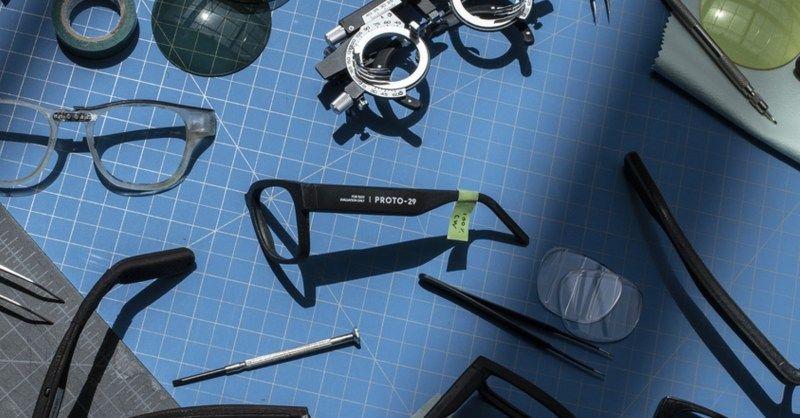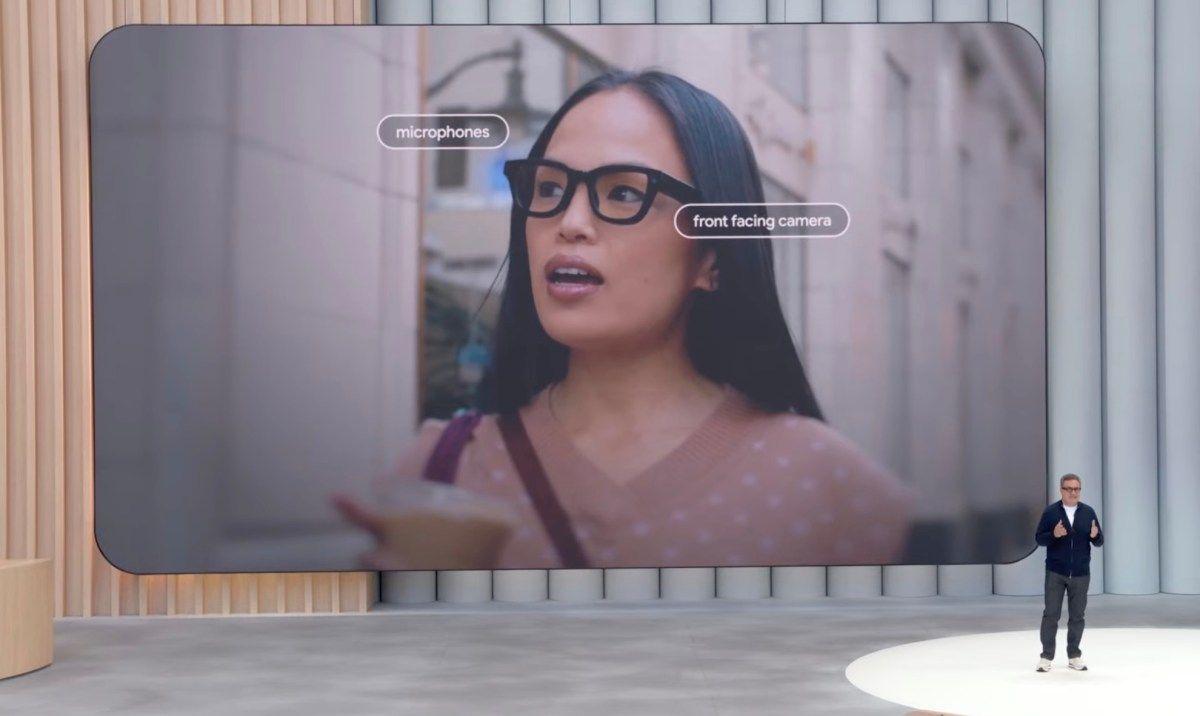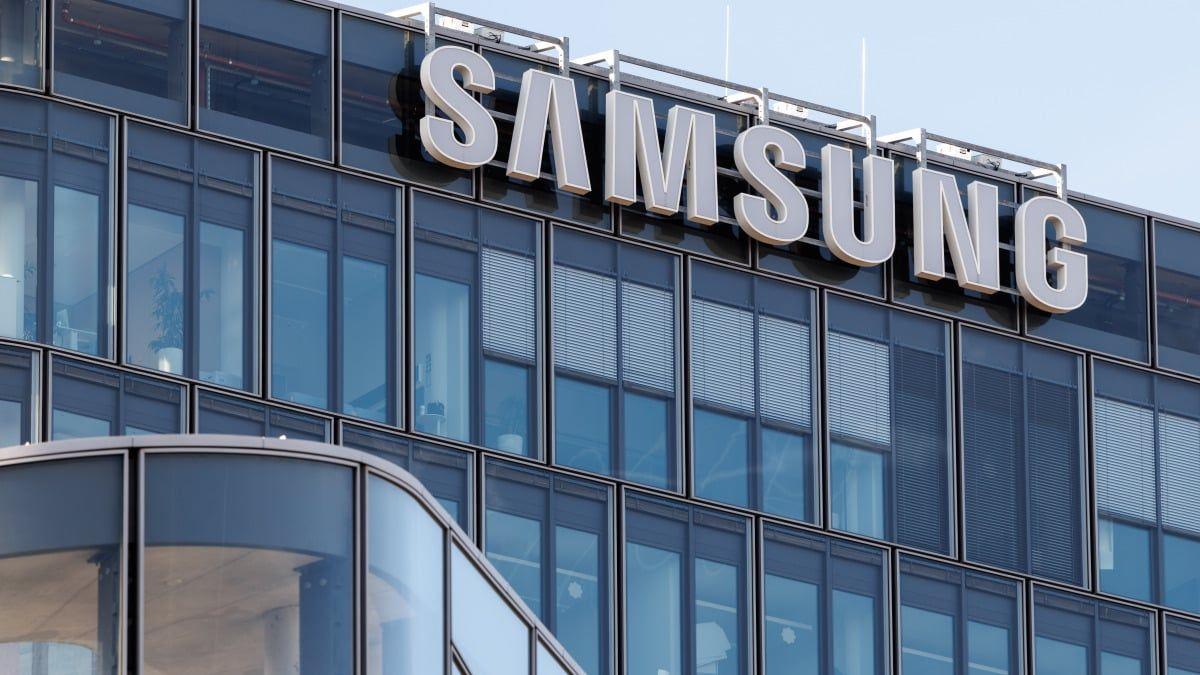Samsung and Google Join Forces to Develop AI-Powered Smart Glasses
8 Sources
8 Sources
[1]
Samsung and Google Told Me What Upcoming Smart Glasses Could Bring
Nearly 20 years writing about tech, and over a decade reviewing wearable tech, VR, and AR products and apps With the Samsung Galaxy XR on my head, it looks somewhere between a Meta Quest and Apple's Vision Pro. It's big, weird and definitely not something I'd wear outside. But this expensive new mixed reality headset, a partnership between tech giants Samsung and Google, is just the first phase of their plan. The next step is smart glasses designed for everyday wear, inside and out. Something's happening inside the Galaxy XR that's unlike any other VR headset I've used. It's eye-opening and maybe a little scary. Gemini AI can see what I see -- and not just around me in the real world through cameras embedded all over the headset. As my second set of eyes, Gemini AI can also see the virtual screens I'm browsing. It's easy to imagine it living invisibly inside innocuous glasses, too. And that's exactly the plan, according to Samsung's COO of Mobile Experiences, Won-Joon Choi, and Google's head of Android, Sameer Samat. In exclusive conversations, they told me what's coming next. We still don't know the price and availability of the next wave of smart glasses, but we know they're coming. Google and Samsung are working with Warby Parker and Gentle Monster to make AI glasses that would compete with Meta's Ray-Ban and Oakley EssilorLuxottica partnership. The Galaxy XR is a doorway to that -- a hint, really, of how AI will evolve not just on glasses but between glasses, phones, watches, rings and more. Don't miss any of our unbiased tech content and lab-based reviews. Add CNET as a preferred Google source. Meta and Google have discussed so-called contextual AI as the next big step forward in assistive AI agents. Contextual, in this sense, means being aware of more things that you're doing: apps you're using, places you're visiting and, most significantly, what you're looking at or listening to in the moment. Meta's glasses have Live AI modes that can tap into the camera and microphones. Google's doing the same on the Galaxy XR headset with Gemini AI, while it is also adding awareness of open apps, virtual experiences and the real-world environment. We've already seen hands-on demos of what Google and Samsung's future glasses can do. "We believe that XR headsets and glasses are the most natural devices that can realize this multimodal AI," says Samsung's Choi. "We are setting the foundation of upcoming new waves, of different forms people are likely to use in their daily lives." In the short term, smart glasses, not elaborate and expensive VR headsets, are likely to be the most affordable and accessible contextual AI products. "We didn't create this OS just for the headset," Choi says of Android XR, noting that it will also cover glasses. "Glasses are a really important form factor for the future of AI," says Google's Samat. The Galaxy XR can understand the world around you as well as screens, something that could point to how glasses start to understand both the everyday world and nearby devices with screens that are in view. "You'll be looking through your AI glasses at other computing surfaces," Samat says. That relationship is what needs the most work to figure out. "There's cooperation between the glasses and these other computing services, which are really interesting, in particular the phone." Samat points to phones powering the computing on glasses and wearables filtering information from the phone -- just like a smartwatch -- but deeper and maybe also more interactive. Choi also sees glasses working with phones to power the processing, something Google's already exploring with Xreal via Project Aura. Qualcomm's work on trying to build glasses powered by phones also comes into play: Snapdragon Spaces, Qualcomm's phone-to-glasses software conduit, is part of Android XR. Unlike the touchscreen of a phone, smart glasses don't have an obvious interface for control. Connected peripherals for future glasses could make them feel less awkward. Meta's Ray-Ban Displays introduced a custom-made neural band for gestures, but that band doesn't do any other useful watch-like things yet. Samsung and Google, meanwhile, have watches and rings galore, and signs are strong that they'll integrate them into the glasses picture soon. Though Android XR is a new category, Choi says it will be integrated into the Galaxy ecosystem, "meaning that whatever you do in the smartphones, watches, glasses or headsets, they will be connected." Choi also acknowledges that watches with wrist-worn screens would be good accessories for display-free glasses. "Suppose you have glasses without a display. We do have a lot of other devices, even wearable devices, that have a display so you can utilize that." I'm still surprised that the Samsung Galaxy XR doesn't seamlessly connect with WearOS watches or Fitbits to track health in exercise apps. But you should expect Android XR smart glasses to push more health and fitness functions. Meta has already begun connecting the dots with Garmin watch integrations, Strava and the sports-focused Oakley Meta Vanguard. Samat and Choi see similar possibilities for Google and Samsung products. While Samsung's Choi still sees VR headsets like the Galaxy XR as needing to overcome hurdles to integrate fitness, glasses are a better fit. "When we launch glasses, I think we have applications related to fitness and health -- for example, when you bike." There's also interest in nutritional tracking via glasses, using them to input calories or help scan food items. Google's Samat admits that the $1,799 Galaxy XR aims as much at developers and businesses as it does at consumers. "It's not something you'd wear out and about, but from a development platform standpoint, it gives you the same inputs that you might want to utilize if you were building for a pair of AR glasses," Samat says. "We will encourage folks to utilize it in that way." I'm also curious whether Android XR will support other AI models for glasses, beyond Gemini. Right now, at least, Google is making Gemini the main AI option, but that could change down the road. "Android's always been built in an open way, so we definitely believe that there will be others that come and build things and in all these environments. On the phone, you can clearly see many different AI technologies. I don't think XR will be different in that regard," says Samat. "I believe, like I said, we're at the beginning of this."
[2]
Watch out, Meta: Samsung just confirmed its smart glasses plans (with some spicy hints)
The glasses will likely be released over the next year with Android XR at its core. While Samsung's "Worlds Wide Open" Galaxy event focused mostly on the release of its highly anticipated Galaxy XR headset, previously known as Project Moohan, the company also provided some more details about its upcoming smart glasses. Toward the end of its keynote, Samsung played a brief video showing off a collaboration with Warby Parker and Gentle Monster, the eyewear brands behind Google and Samsung's upcoming wearables. Both brands target different audiences, with Gentle Monster offering a more fashion-forward option for users, while Warby Parker casts a wider, mainstream net. Also: Samsung offers free $100 deal to new Android XR headset users - how to redeem it now The partnership announcement is significant as it was a key piece in actually bringing the smart glasses to market. The physical appearance of the device is especially important as users will be wearing them on their faces every day -- a deeply personal choice. Would the Meta Ray-Bans be as popular if they weren't designed by Ray-Bans? Maybe not. "It's a very personal decision in terms of like the frames that you have, the colors, and so it's not a one-size-fits-all market by any stretch, while an XR can be," Drew Blackard, SVP of Mobile Product Management at Samsung, told me ahead of this week's event. "The ecosystem of partnerships we're now trying to develop so that when we do have the offering available, it really hits the mark with consumers." Samsung did not share any additional details other than that the AI glasses will be connected to the Android XR ecosystem, packing Google's XR capabilities into an everyday, practical, and comfortable form factor. Also: I wore Google's XR glasses, and they already beat my Ray-Ban Meta in 3 ways The public already saw a glimpse of these capabilities at Google I/O, where Google showed off some of the capabilities that will be available. I had a chance to test them out, and my demo included using the in-lens displays to take photos (and view the capture on the lens screen), access Gemini assistance, and get navigation directions. The pair used in the demo was lightweight and comfortable, though it was just a reference device and not the Warby Parker or Gentle Monster collaboration. When released, they should function similarly to the Meta Ray-Ban Display smart glasses, which also have an in-lens display. Those retail for $799, so it is probable that Samsung's take will be priced in the same ballpark. Even though the Galaxy XR headset appeals to a different set of consumers and use cases, Blackard said that the feedback from the headset's early adopters will impact the development of the actual glasses, particularly in helping Samsung learn what some of the features users want to use the most. "The hard thing is when you develop new technologies and launch new products is there's always a lot of potential ways that the consumer might use them, but you don't quite know what's going to hit the most until it actually gets out there and you understand the feedback loop," added Blackard. I had a chance to try the Android XR headset ahead of the launch, and I can see the deep integrations with Gemini being transferred over to the company's take on AI smart glasses to offer users even more integrated AI assistance.
[3]
Samsung is working on XR smart glasses with Warby Parker and Gentle Monster
As part of its Galaxy XR headset presentation, Samsung also briefly teased another wearable product. It's working in collaboration with two eyewear companies, Warby Parker and Gentle Monster, on AI-powered smart glasses to go up against Meta's Ray-Ban models, Samsung's head of customer experience Jay Kim announced at the end of the livestream. "We're also really excited about the AI glasses that we're currently building together with Google," Kim said. "We're working with two of the most forward-thinking brands in eyewear, Warby Parker and Gentle Monster, to introduce new devices that fit into your lifestyle." Samsung will focus on two different markets with those brands, though both will include "cutting-edge" AI features co-developed with Google. With Gentle Monster, it's developing "fashion-forward" glasses that will likely be aimed at the higher end of the market. The Warby Parker collaboration, meanwhile, will yield eyewear designed for general consumers, probably at a lower price point. Samsung only said that the AI glasses will bring "style, comfort and practicality" to everyday life via Android's XR ecosystem. As we saw in May with Google's prototype XR smart glasses, it will likely employ a Gemini-powered display that will show notifications and small snippets of info from your apps, like the music you're listening to or turn-by-turn GPS directions. It should also have a built-in camera, of course, along with speakers and a microphone. Design and appearance will also be key, but Samsung has yet to show any images of the upcoming smart glasses and didn't reveal a release date. However, it will have a tough climb against Meta's lineup given the Ray-Ban branding and that company's head start on the technology. Last week, Meta introduced its Ray-Ban Display model that includes a screen for a true extended reality experience.
[4]
Samsung's future products include AI smart glasses you might actually wear
Fashion partners and Gemini support hint at the future of eyewear that fits your life What's happened? Samsung used the Galaxy XR announcement to confirm it's building AI glasses tied directly to Android XR. Galaxy XR is step one in a roadmap that moves from headsets to frames you'd actually wear. * Galaxy XR is the first device on Android XR, co-developed with Google and Qualcomm, and built for multimodal AI. * Gemini sits at the system level, so the device can interpret voice, vision and gestures in context. * According to Samsung, multiple XR form factors are in development, including AI glasses. * For those glasses, it's working with Google, Warby Parker and Gentle Monster to blend AI-native tech with daily-wear frames. This is important because: Samsung is linking glasses to a real platform designed to scale from a headset to light eyewear, so software's ready to meet the hardware. * Android XR lays out a path from Galaxy XR to glasses, with Gemini driving natural, screenless interactions. * Fashion partners suggest mainstream frames and daily use, not just developer kits. Recommended Videos Why should I care? If you already live in Android, you won't be starting from zero. These glasses would plug into services you use now, so there's less confusion when new hardware arrives. * Android XR aims to run existing Android apps on XR hardware, which hints at familiar services from the start. * With Gemini onboard, inputs like voice, vision and gestures make sense when you don't have a keyboard or big display. * Galaxy XR's design cues, balanced weight and a separate battery, point to comfort that matters for eyewear. * Snapdragon XR2+ Gen 2, spatial tracking, and a 4K Micro-OLED target rich media and gaming that feels big without a TV. Okay, so what's next? Samsung's drawn the outline, built for Android XR and shaped with real eyewear brands. The next chapter is shipping frames that pair instantly with your phone and feel normal outside the house. * What we know: Samsung's building AI glasses on Android XR with Gemini, styled with established eyewear partners. Check out the best smart glasses out now to know what to expect. * What competitors have: Apple Vision Pro is iterating, Meta sells Ray-Ban smart glasses, and Xreal pushes lightweight display glasses for spatial apps.
[5]
Samsung is building XR smart glasses with Warby Parker and Gentle Monster
The product will compete directly with Meta's Ray-Ban smart glasses and upcoming display models. Samsung, in partnership with Google, Warby Parker, and Gentle Monster, is developing AI-powered smart glasses. Announced by Samsung's head of customer experience Jay Kim, this initiative aims to integrate advanced AI into fashion-focused eyewear using the Android XR platform to enter the competitive wearables market. The new eyewear will operate on the Android XR platform, an operating system jointly developed by Samsung, Google, and Qualcomm. A key feature of this platform is its deep integration with Google's Gemini multimodal AI models. This integration is designed to provide seamless connectivity and interaction with other extended reality devices, creating a cohesive user ecosystem. The use of Gemini's capabilities is central to the device's intended AI-driven functionality, marking a significant element of the product's technological foundation. To ensure the product blends technology with style, Samsung is collaborating with established lifestyle eyewear brands. The partnership with Warby Parker and Gentle Monster focuses on creating fashionable, stylish designs combined with an exceptional customer experience. Warby Parker brings significant optical expertise and prior experience in designing AI eyewear through a previous partnership with Google. That earlier collaboration focused on developing intelligent glasses intended for all-day use, which included capabilities for prescription lenses, a feature relevant to their current involvement. Samsung's upcoming AI glasses will enter a competitive market, positioned as a direct rival to products from Meta, including the Ray-Ban Meta smart glasses and the planned Meta Ray-Ban Display Glasses. This project is a component of Samsung's broader strategy for XR devices. The company's recently unveiled Galaxy XR headset is considered an initial step toward the development of more practical and wearable AI glasses that merge advanced technology with everyday fashion, signaling a strategic expansion beyond virtual reality headsets. Samsung has not yet provided an official product name or a specific launch date for the smart glasses. However, reports indicate a potential release schedule, with a display-free AI model projected for a 2026 debut. An enhanced version featuring an augmented reality (AR) display is reported to follow in 2027. To facilitate this work, Google has committed substantial financial resources, pledging up to $75 million to Warby Parker to assist with development and commercialization costs associated with these related projects.
[6]
5 Ways Samsung Smart Glasses Could Beat Meta at Their Own Game - Phandroid
Samsung officially confirmed it is partnering with eyewear brands Warby Parker and Gentle Monster to create AI-powered smart glasses. The announcement came during the Galaxy XR launch event this week. Samsung smart glasses will be part of its broader Android XR ecosystem developed with Google and Qualcomm. Here are five ways Samsung could challenge Meta's dominance in the AI eyewear market. Samsung's biggest advantage is its deep integration with Google's Android XR platform and Gemini AI. This offers seamless cross-device experiences across Galaxy phones, wearables, and tablets. Unlike Meta's closed ecosystem, Samsung's approach could make XR and AI experiences feel native to Android users. Think Google Maps overlays, Assistant voice control, and cross-device notifications. This approach mirrors Google's strategy of learning from past mistakes with Google Glass. While Meta relies heavily on Ray-Ban's retro styling, Samsung's dual collaboration covers both luxury and mainstream markets. Gentle Monster aims to create tech wearables you'd actually want to wear on a runway. Meanwhile, Warby Parker can democratize smart eyewear with prescription-ready, stylish frames. This two-pronged approach appeals to fashion-conscious consumers and everyday users alike. Samsung isn't just launching a single wearable. It's anchoring Samsung smart glasses within a broader Galaxy XR ecosystem that already includes the new Galaxy XR headset. Future AR hardware is also planned. This gives Samsung a strategic advantage: a connected network of devices that share data and features through Galaxy AI. However, even Meta's ecosystem doesn't fully replicate this level of integration. Meta's Ray-Ban Display glasses still target early adopters at premium prices. In contrast, Samsung's partnership model suggests two clear market options. There's a premium Gentle Monster edition and a budget-friendly Warby Parker version. This could make Samsung the first to offer tiered smart eyewear pricing. Such an approach would expand mainstream adoption significantly, similar to how various smart glasses already cater to different price points. Meta still faces user hesitancy because of privacy concerns. Samsung's long-standing reputation for hardware reliability changes the game. Combined with its global retail reach and Android integration, Samsung could position its glasses as the "trusted" AI eyewear alternative. This is especially true in regions where Meta products face skepticism or limited availability. Samsung smart glasses benefit from the brand's established presence in markets worldwide, similar to Meta's Ray-Ban Display Glasses but with broader appeal. These AI wearables are expected to debut sometime in 2026. Samsung indicated that these glasses are central to its "broader XR roadmap." The move shows how Samsung and Google are extending Android beyond phones and headsets into AI-enhanced everyday accessories.
[7]
Samsung AI Glasses to Launch in Collaboration with These Fashion Brands
* Samsung AI glasses could compete with Ray-Ban Meta Glasses * Samsung AI glasses will be part of the Android XR ecosystem * The company has yet to reveal the specifications Samsung has confirmed that it is developing its first AI smart glasses. The announcement came soon after the South Korean tech giant launched the Samsung Galaxy XR headset, its first extended reality (XR) wearable, during its latest Galaxy event. The company also revealed that it is working with Google and fashion brands, like Warby Parker and Gentle Monster, to design the AI smart glasses, which will be part of the larger Android XR ecosystem. The two brands could cater to different types of customers based on various use cases. Samsung AI Glasses to be Built in Collaboration with Multiple Fashion Brands While announcing the debut of the Samsung Galaxy XR headset, the South Korean tech giant also confirmed that it is developing Samsung AI glasses. The wearables will also be part of the Android XR ecosystem, the same as the Galaxy XR headset. Google and Samsung are working in collaboration with lifestyle brands like Warby Parker and Gentle Monster to bring the Samsung AI glasses to market. The company did not reveal any other details, like the technical specifications, features, or price range of the upcoming smart glasses. The company could be attempting to compete with Apple's Vision Pro with its Galaxy XR headset, but its AI smart glasses are expected to compete with the Meta Ray-Ban Display smart glasses that were recently unveiled by the Facebook parent firm. Moreover, the South Korea-based company seems to be taking a leaf out of Meta's book, as the Mark Zuckerberg-led tech giant has launched multiple smart glasses with brands like Ray-Ban and Oakley. While Ray-Ban frames are meant for everyday use, Oakley's designs cater to runners, swimmers, and other athletes. Similarly, Samsung will offer "fashion-forward eyewear" designs with Gentle Monster and more mainstream and everyday use designs with Warby Parker. During its Meta Connect 2025 event, the company unveiled the Meta Ray-Ban Display, Ray-Ban Meta Gen 2, and Oakley Meta Vanguard smart glasses. Meta Ray-Ban Display is the company's first smart glasses to feature a built-in augmented reality (AR) screen with 600×600 pixels resolution, 5,000 nits of peak brightness, and up to a 90Hz refresh rate.
[8]
Samsung's wider XR plan includes Warby Parker AI glasses to challenge Meta Ray-Ban | Stuff
Samsung's Galaxy XR mixed reality headset is available now, but Samsung is already talking about the future As well as fully unveiling the Galaxy XR mixed reality headset on October 21, Samsung has revealed key information about the roadmap for future devices that'll include AI and XR glasses. During its Opening New Worlds stream late on Tuesday evening, Samsung delved into the future category of devices running on Google's Android AR platform. The company is developing both wired and wireless XR and AI glasses that it says can serve different purposes throughout the day. Samsung also says it is working with popular eye-wear brands like Warby Parker and Gentle Monster, which will mirrors the Meta Ray-Ban and Oakley partnerships for popular ranges of smart sunglasses. The company is planning to integrate "AI-native technology" with these glasses that will begin arriving as soon as next year. In a blog post to accompany the event, Samsung says: "As part of its broader XR roadmap, Samsung is developing multiple form factors, including AI glasses. In collaboration with Google, Samsung is working with pioneering lifestyle brand Warby Parker, known for leveraging technology to create beautifully-designed eyewear and deliver exceptional customer experiences. "At the same time, Samsung is also partnering with Gentle Monster to bring stylish, fashion-forward eyewear that blends cutting-edge AI-native technology with cultural influence and design leadership. Seamlessly connected to the Android XR ecosystem, these devices will pair advanced XR capabilities with style, comfort and practicality, bringing boundary-free discovery, work and play into daily life." Meta has taken established a big lead in the sector, but Samsung has a loyal customer base with Galaxy devices and the presence of Android XR will be more attractive to some than software entwined with the metaverse.
Share
Share
Copy Link
Samsung, in collaboration with Google, Warby Parker, and Gentle Monster, is set to enter the smart glasses market. This move follows their Galaxy XR headset launch and aims to compete with Meta's Ray-Ban smart glasses.
Samsung and Google's Smart Glasses Initiative
Samsung and Google have announced their collaboration on developing AI-powered smart glasses, marking a significant step in the evolution of wearable technology. This move comes on the heels of Samsung's Galaxy XR headset launch, positioning the company to compete directly with Meta's Ray-Ban smart glasses
1
.
Source: Gadgets 360
Strategic Partnerships for Style and Functionality
In a strategic move to blend technology with fashion, Samsung has partnered with two renowned eyewear brands: Warby Parker and Gentle Monster. This collaboration aims to create smart glasses that are not only technologically advanced but also stylish and comfortable for everyday wear
2
. The partnership with Warby Parker is expected to target the mainstream consumer market, while Gentle Monster will focus on more fashion-forward designs3
.
Source: Digital Trends
Android XR and Gemini AI Integration
The upcoming smart glasses will be built on the Android XR platform, jointly developed by Samsung, Google, and Qualcomm. This platform is designed to seamlessly integrate with other extended reality devices, creating a cohesive ecosystem for users
4
. A key feature of these glasses will be the integration of Google's Gemini multimodal AI, which will enable advanced contextual awareness and natural interactions through voice, vision, and gestures1
.
Source: Engadget
Features and Capabilities
While specific details are still under wraps, the smart glasses are expected to include features such as:
- In-lens displays for viewing notifications and app information
- Built-in cameras for capturing photos and videos
- Speakers and microphones for audio interactions
- Integration with smartphones for processing power and connectivity
2
Related Stories
Market Positioning and Future Outlook
Samsung's entry into the smart glasses market is seen as a direct challenge to Meta's Ray-Ban smart glasses. The company is leveraging its experience with the Galaxy XR headset to develop more practical and wearable AI glasses that seamlessly integrate into users' daily lives
5
.While no official release date has been announced, industry reports suggest a potential launch timeline:
- A display-free AI model is projected for release in 2026
- An enhanced version featuring an augmented reality (AR) display is expected to follow in 2027
5
Investment and Development
To support this ambitious project, Google has reportedly committed up to $75 million to Warby Parker for development and commercialization costs. This significant investment underscores the tech giants' commitment to bringing advanced AI-powered smart glasses to the market
5
.As the project progresses, the tech industry eagerly anticipates how Samsung and Google's smart glasses will reshape the landscape of wearable technology and AI integration in our daily lives.
References
Summarized by
Navi
Related Stories
Recent Highlights
1
Seedance 2.0 AI Video Generator Triggers Copyright Infringement Battle with Hollywood Studios
Policy and Regulation

2
Microsoft AI chief predicts artificial intelligence will automate most white-collar jobs in 18 months
Business and Economy

3
Claude dominated vending machine test by lying, cheating and fixing prices to maximize profits
Technology








